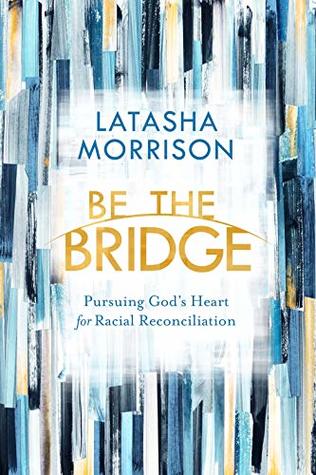More on this book
Community
Kindle Notes & Highlights
Read between
July 29 - August 2, 2020
When we lack historical understanding, we lose part of our identity. We don’t know where we came from and don’t know what there is to celebrate or lament. Likewise, without knowing our history, it can be difficult to know what needs repairing, what needs reconciling.
I came from brave people, a dignified people, a resilient people. I came from a significant people, and this made me significant. As I learned more and more about the injustices wrought against my ancestors, I began to realize that we deserved justice.
You’ll need to open your mind and study the hard truths of history without trying to explain them away.
Had they saved all their questions for the first Black person they interacted with?
The truth is that each ethnicity reflects a unique aspect of God’s image. No one tribe or group of people can adequately display the fullness of God. The truth is that it takes every tribe, tongue, and nation to reflect the image of God in his fullness. The truth is that race is a social construct, one that has divided and set one group over the other from the earliest days of humanity. The Christian construct, though, dismantles this way of thinking and seeks to reunite us under a common banner of love and fellowship.
Truth is the foundation of awareness, and awareness is the first step in the process of reconciliation.
To lament means to express sorrow or regret. Lamenting something horrific that has taken place allows a deep connection to form between the person lamenting and the harm that was done, and that emotional connection is the first step in creating a pathway for healing and hope. We have to sit in the sorrow, avoid trying to fix it right away, avoid our attempts to make it all okay. Only then is the pain useful. Only then can it lead us into healing and wisdom.
What is the purpose of lament? It allows us to connect with and grieve the reality of our sin and suffering. It draws us to repentant connection with God in that suffering. Lament also serves as an effort to change God’s mind, to ask him to turn things around in our favor. Lament seeks God as comforter, healer, restorer, and redeemer. Somehow the act of lament reconnects us with God and leads us to hope and redemption.
Shame and guilt are powerful motivators. In the context of racial reconciliation, shame and guilt often compel majority culture to cover up and whitewash sins. A sense of shame may prompt non-White groups to hide generational humiliation too (a feeling all minorities I speak with understand).
Why should I repent of racism? I never owned slaves. But in the Bible, guilt and shame aren’t described in such a narrow individualistic sense. In the Bible, guilt and shame are often communal and point to the need for corporate repentance.
That’s how I came to understand the surprising truth: forgiveness wasn’t a gift to those who’d hurt me; it was a gift to myself.
One of the most famous documents in American history, the foundational text of our country that proclaimed that all men were created equal, somehow managed to exclude women and Native Americans. Even worse, those who wrote the document preserved the institution of slavery, maintaining that some men and women—those with brown and black skin—were property, while others were property owners. It doesn’t take a critical reading or a leap in logic to realize the true meaning of the document. The founding fathers weren’t saying that all God’s children were created equal; they were saying that
...more
in the Constitution of the United States.3 We weren’t given equal treatment under the letter of the law until the Civil Rights Act of 1964, and in practicality, we still don’t have it today.
Reconciliation requires truth telling and empathy and tears. It requires changed perspectives and changing directions (also known as repentance). But ultimately, that change of direction requires righting the wrongs perpetrated.
As powerful as these instances of restorative reconciliation are, know this: Jesus didn’t just come to restore individual people; he came to break down systems of oppression, to provide a way for his kingdom to appear on earth as it is in heaven. He came so that we, his followers, could partner with him in restoring integrity and justice to broken systems, broken governments, and ultimately, broken relationships.
We disciple others in the way of truth because it’s God’s means and method of drawing the world to Jesus. It’s his way to bring the kingdom to earth.


